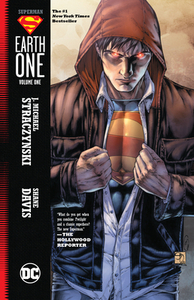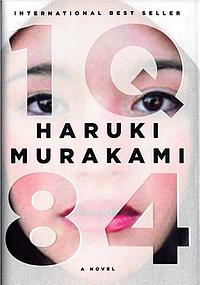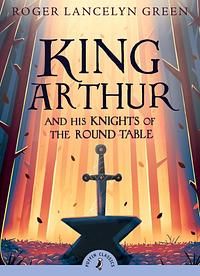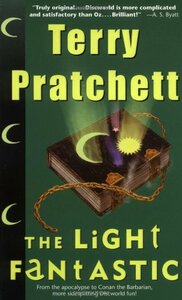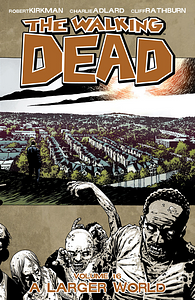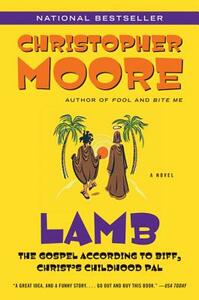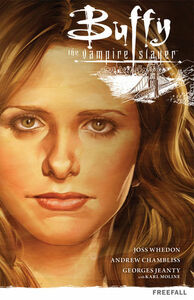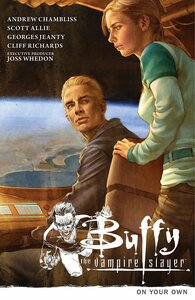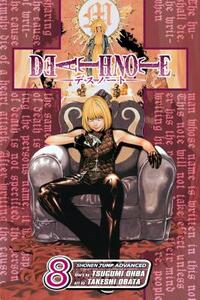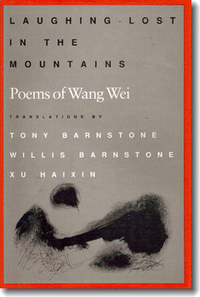Take a photo of a barcode or cover
thegeekycolombo's Reviews (928)
I am not a superhero fanatic, aficionado or expert of any kind. I read comics not as a kid, but as a teenager, and even then found myself drawn to indie comics and manga. Marvel and DC were always unapproachable in my mind and honestly not something I was interested in. I always knew the basic origin stories of the "popular" characters, but it was not until my senior year in college when I chose to study themes within the superhero genre that I found myself really intrigued by a lot of the stories and characters.
One of the characters I never gave second thought to, assuming he was singular and uninteresting, was Superman. However, Straczynski hooked me with [b:Superman: Grounded, Vol. 1|9755795|Superman Grounded, Vol. 1|J. Michael Straczynski|http://d.gr-assets.com/books/1320563817s/9755795.jpg|14645081]. He brought complexity and humanity to this seemingly perfect and infallible character in Grounded. Once again, JMS has me hooked through Earth One. I loved this story. I enjoy seeing Clark at odds with who he wants to be and his destiny as Superman, seeing his humanity and his inner conflict. JMS has a way of modernizing this character and his story in a way that intrigues me and makes me hungry for more. My only complaint would be that sometimes it is a bit emo for my liking, but not enough to keep me away.
If JMS's interpretation and modernization of the Man of Steel is any indication of where this character is going in future renditions and stories, I might have to move Superman to the top of my list.
One of the characters I never gave second thought to, assuming he was singular and uninteresting, was Superman. However, Straczynski hooked me with [b:Superman: Grounded, Vol. 1|9755795|Superman Grounded, Vol. 1|J. Michael Straczynski|http://d.gr-assets.com/books/1320563817s/9755795.jpg|14645081]. He brought complexity and humanity to this seemingly perfect and infallible character in Grounded. Once again, JMS has me hooked through Earth One. I loved this story. I enjoy seeing Clark at odds with who he wants to be and his destiny as Superman, seeing his humanity and his inner conflict. JMS has a way of modernizing this character and his story in a way that intrigues me and makes me hungry for more. My only complaint would be that sometimes it is a bit emo for my liking, but not enough to keep me away.
If JMS's interpretation and modernization of the Man of Steel is any indication of where this character is going in future renditions and stories, I might have to move Superman to the top of my list.
I have so much to say about this novel that I am almost out of words as to how to say it. In fact, most of what I want to say will most likely remain with me and not here in my review.
As usual, Murakami takes us on a whimsical journey ending in the least expected place. His writing is elegant and thoughtful as he develops this magical and intoxicating journey of Tengo and Aomame. He has an interesting way of leading you down one path, taking you on a detour without you even realizing the lanes changed until you get there. It is not often a writer can keep me enthralled to the point of having vivid dreams about characters and locations, but Murakami is consistent in creating worlds that embrace me until the very end, leaving me feeling sad and fulfilled all at the same time come the close.
His character development is also beautiful and magical. Creating seemingly everyday people, nothing unique, nothing special and yet they are so wonderful you cannot help but care for them, even the so-called bad guys.
I see some reviewers complaining about the repetition and use of language. First off, I think the repetition is a part of Murakami's writing style. Phrases and thoughts are often repeated and for good reason. Also, in a story like this where the author is telling a complete story from the aspect of two, sometimes three people, repetition should be expected as we observe from different sides. There was one reviewer who complained about some "cheesy" lines, but let's not forget, Murakami's books are translated into English, not written in it; therefore, the translation does not often work to the flow of the writing in all cases. To that complaint, I say deal with it or stop reading works translated from other languages.
To the new reader of Murakami I recommend starting with [b:Norwegian Wood|11297|Norwegian Wood|Haruki Murakami|http://photo.goodreads.com/books/1320451630s/11297.jpg|2956680] or his collection of short stories, [b:The Elephant Vanishes|9555|The Elephant Vanishes Stories|Haruki Murakami|http://photo.goodreads.com/books/1320456886s/9555.jpg|693417]. If you enjoy those pieces, then read [b:1Q84|10357575|1Q84 |Haruki Murakami|http://photo.goodreads.com/books/1316729331s/10357575.jpg|18160093] and [b:The Wind-Up Bird Chronicle|11275|The Wind-Up Bird Chronicle|Haruki Murakami|http://photo.goodreads.com/books/1327872639s/11275.jpg|2531376]. This story, however, is going in the "Books to Own for the Apocalypse" pile as I will surely want to read this again and again and again. Even now, having finished the final words not ten minutes ago, I am still overwhelmed with emotion and feeling for these characters and their story. At the same time, I find myself anxious to climb down the emergency stairway and into this world with two moons all over again.
As usual, Murakami takes us on a whimsical journey ending in the least expected place. His writing is elegant and thoughtful as he develops this magical and intoxicating journey of Tengo and Aomame. He has an interesting way of leading you down one path, taking you on a detour without you even realizing the lanes changed until you get there. It is not often a writer can keep me enthralled to the point of having vivid dreams about characters and locations, but Murakami is consistent in creating worlds that embrace me until the very end, leaving me feeling sad and fulfilled all at the same time come the close.
His character development is also beautiful and magical. Creating seemingly everyday people, nothing unique, nothing special and yet they are so wonderful you cannot help but care for them, even the so-called bad guys.
I see some reviewers complaining about the repetition and use of language. First off, I think the repetition is a part of Murakami's writing style. Phrases and thoughts are often repeated and for good reason. Also, in a story like this where the author is telling a complete story from the aspect of two, sometimes three people, repetition should be expected as we observe from different sides. There was one reviewer who complained about some "cheesy" lines, but let's not forget, Murakami's books are translated into English, not written in it; therefore, the translation does not often work to the flow of the writing in all cases. To that complaint, I say deal with it or stop reading works translated from other languages.
To the new reader of Murakami I recommend starting with [b:Norwegian Wood|11297|Norwegian Wood|Haruki Murakami|http://photo.goodreads.com/books/1320451630s/11297.jpg|2956680] or his collection of short stories, [b:The Elephant Vanishes|9555|The Elephant Vanishes Stories|Haruki Murakami|http://photo.goodreads.com/books/1320456886s/9555.jpg|693417]. If you enjoy those pieces, then read [b:1Q84|10357575|1Q84 |Haruki Murakami|http://photo.goodreads.com/books/1316729331s/10357575.jpg|18160093] and [b:The Wind-Up Bird Chronicle|11275|The Wind-Up Bird Chronicle|Haruki Murakami|http://photo.goodreads.com/books/1327872639s/11275.jpg|2531376]. This story, however, is going in the "Books to Own for the Apocalypse" pile as I will surely want to read this again and again and again. Even now, having finished the final words not ten minutes ago, I am still overwhelmed with emotion and feeling for these characters and their story. At the same time, I find myself anxious to climb down the emergency stairway and into this world with two moons all over again.
While I love the tales of King Arthur and his knights, this book is obviously "dumbed down" a bit for young readers. I found the writing choppy and lacking the flow I have come to enjoy from many of the classic stories. I would recommend this to young readers, though, as it is a great introduction into the stories of King Arthur. Myself, however, I plan to re-read Le Morte de Arthur to remind me how these stories were meant to be told.
Brilliantly written, better than the first. I cannot wait to jump into the next in this series.
i have seen Christopher Moore's novels slowly taking over bookshelves for quite sometime, but have always kept his name in the back crevices of my mind as something to read someday, but not today.
When I saw Lamb sitting on the shelf at the used bookstore I thought, "What the heck?" I am so glad I followed my gut on this one and put off reading what was originally next on the list. This book had me giggling from the first page to the very last, and at times even laughing so hard my eyes were were blurry and my stomach hurt. As Josh and Biff travel across Asia, invent sarcasm and learn alchemy we learn very quickly why these stories of Jesus' early life were left out of the Bible.
Moore's wit and gift for story-telling shine bright throughout Lamb. He takes many liberties with the historical context (and fully admits to doing so in the Afterword) and gives a not-so-perfect vision of the Messiah as a teenager, but it is all in good fun and definitely worth a read. I hope this is just a glimpse of what Moore has to offer. I can't wait to read more of his work.
When I saw Lamb sitting on the shelf at the used bookstore I thought, "What the heck?" I am so glad I followed my gut on this one and put off reading what was originally next on the list. This book had me giggling from the first page to the very last, and at times even laughing so hard my eyes were were blurry and my stomach hurt. As Josh and Biff travel across Asia, invent sarcasm and learn alchemy we learn very quickly why these stories of Jesus' early life were left out of the Bible.
Moore's wit and gift for story-telling shine bright throughout Lamb. He takes many liberties with the historical context (and fully admits to doing so in the Afterword) and gives a not-so-perfect vision of the Messiah as a teenager, but it is all in good fun and definitely worth a read. I hope this is just a glimpse of what Moore has to offer. I can't wait to read more of his work.
